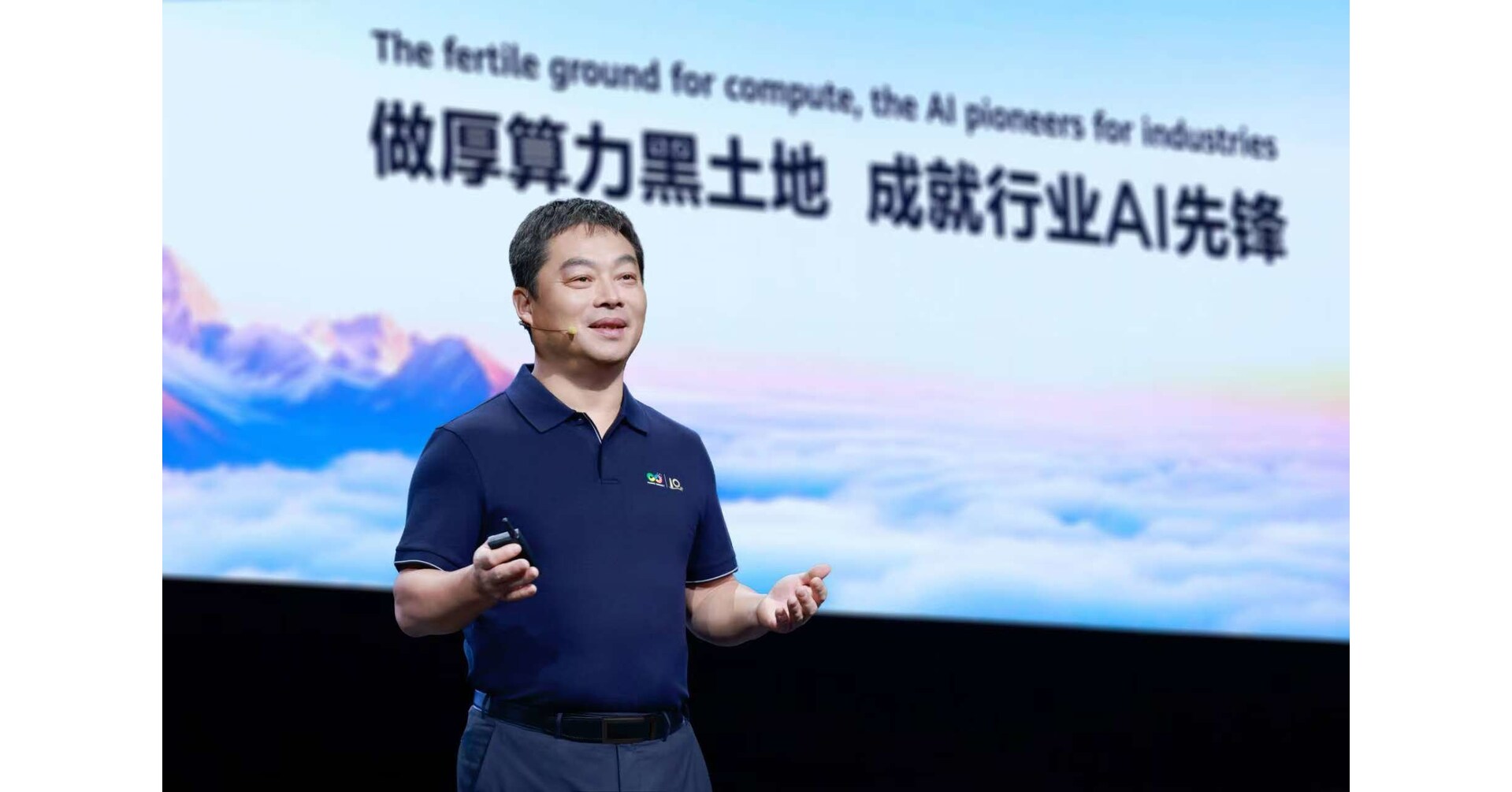Huawei Cloud: Fostering the Fertile Ground for Compute, Empowering AI Pioneers for Industries
SHANGHAI, Sept. 19, 2025 — On the second day of HUAWEI CONNECT 2025, Zhang Ping’an, Huawei’s Executive Director of the Board and CEO of Huawei Cloud, delivered a keynote titled ‘All Intelligence: Empowering AI Pioneers for Industries.’ He outlined Huawei Cloud’s latest innovations and practices across AI compute services, foundation models, embodied AI, AI agents, and related technologies.
Constant innovation in AI compute service: Unleashing powerful compute in the intelligent era
This year Huawei Cloud announced its AI Compute Service powered by CloudMatrix384. Huawei plans to upgrade CloudMatrix supernodes from 384 cards to 8,192 cards. With aggregated supernodes supporting hyperscale clusters of 500,000 to 1 million cards, Huawei Cloud aims to provide robust AI compute at scale for industry customers.
Huawei Cloud also introduced Elastic Memory Service (EMS), an innovative memory-storage approach that effectively expands video RAM and reduces latency for multi-round conversations on foundation models, improving user experience for interactive AI services.
Huawei Cloud has deployed fully liquid-cooled AI data centers in Guizhou, Inner Mongolia, and Anhui. Those centers support 80 kW heat dissipation per cabinet, reduce PUE to about 1.1, and incorporate AI-enabled operations and maintenance (O&M). Enterprises can connect with a pair of optical fibers and access dedicated AI cloud services without rebuilding traditional data centers.
AI Token Service and performance gains
Zhang Ping’an described the AI Token Service, which abstracts technical complexity and delivers final AI computing results to users for efficient inference consumption. The CloudMatrix384 supernode pools compute, memory, and storage resources, decouples compute and storage tasks, and converts serial tasks to distributed parallel tasks, substantially improving inference performance. For mixed-latency inference scenarios (online, nearline, offline), CloudMatrix384 yields average per-card inference performance 3–4x that of prior solutions.
Huawei Cloud announced the official launch of the AI Token Service powered by CloudMatrix384 to deliver enhanced performance, service, and quality to customers.
Helping enterprises build industry models
Huawei Cloud continues to refine Pangu Models for industry scenarios. Using openPangu, Huawei provides best practices for model training and inference to help developers better leverage compute resources. Zhang Ping’an said Huawei is also advancing a closed-source Pangu Model and will keep investing in model development and industry-specific capabilities to support customers’ intelligent transformation.
Pangu Models are already applied in more than 500 scenarios across 30+ industries, including government services, finance, manufacturing, healthcare, coal mining, steel, railways, autonomous driving, and meteorology.
CloudRobo and embodied AI: Moving beyond terminals
Huawei Cloud launched the CloudRobo Embodied AI Platform to run complex algorithms and intelligent logic on the cloud, enabling lighter-weight robots with more intelligent execution. Cloud intelligence helps overcome limitations for robots and broadens applicable scenarios.
To enable a unified, open, and secure channel between robots and cloud services, Huawei Cloud introduced the Robot to Cloud (R2C) Protocol and announced the first 20 partners onboarded to the protocol.
Kunpeng Cloud Services and software-hardware synergy
Huawei Cloud is expanding Kunpeng-powered ARM cloud services that emphasize performance, security, and reliability. Kunpeng compute cores on Huawei Cloud rose from 9 million to 15 million over the past year (a 67% increase). The Kunpeng platform now supports compatibility with mainstream software and more than 25,000 applications, enabling Kunpeng Cloud Services to address a wider set of general-computing scenarios.
GaussDB: Database foundations based on supernodes and full pooling
GaussDB databases implemented on general-purpose computing supernodes realize layered pooling of compute, memory, and storage, allowing multi-read and multi-write on any node. This departs from traditional architectures where only the primary node handles read/write, and supports dynamic load scheduling for better concurrent transaction processing. A GaussDB cluster on computing supernodes can process 5.4 million transactions per minute — about 2.9x the performance of a non-supernode cluster.
All-scenario distributed cloud and agent platform
Huawei Cloud has built a distributed cloud solution covering CloudOcean, CloudSea, CloudLake, and CloudPond to provide consistent cloud experience across central regions, hotspots, and edge sites, delivering ubiquitous compute with local access.
Huawei Cloud also launched Versatile, an enterprise-grade agent platform designed to be easy-to-use, effective, and open for developing and running AI agents. Based on Versatile, users can prepare business description documents and flowcharts and quickly generate agents in two steps, improving generation efficiency for enterprise scenarios.

In addition to keynote presentations, Huawei Cloud hosted summit forums, roundtables, and exhibits with customers and partners showcasing cloud infrastructure, large models, databases, AI agents, and embodied AI — demonstrating how technology can accelerate digital and intelligent transformation across industries.
SOURCE HUAWEI CLOUD



